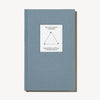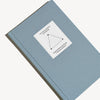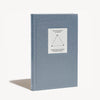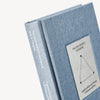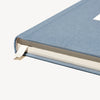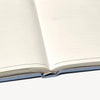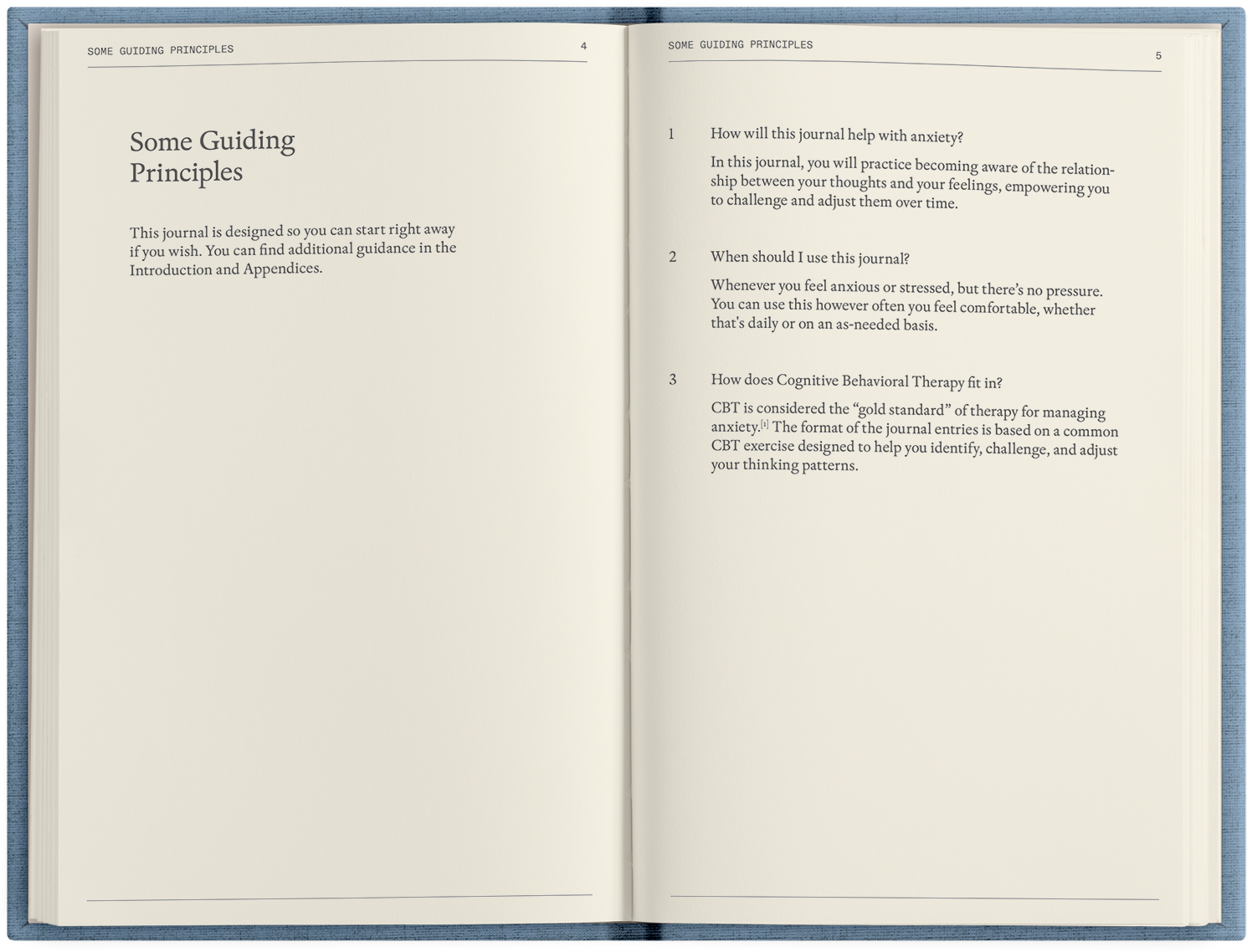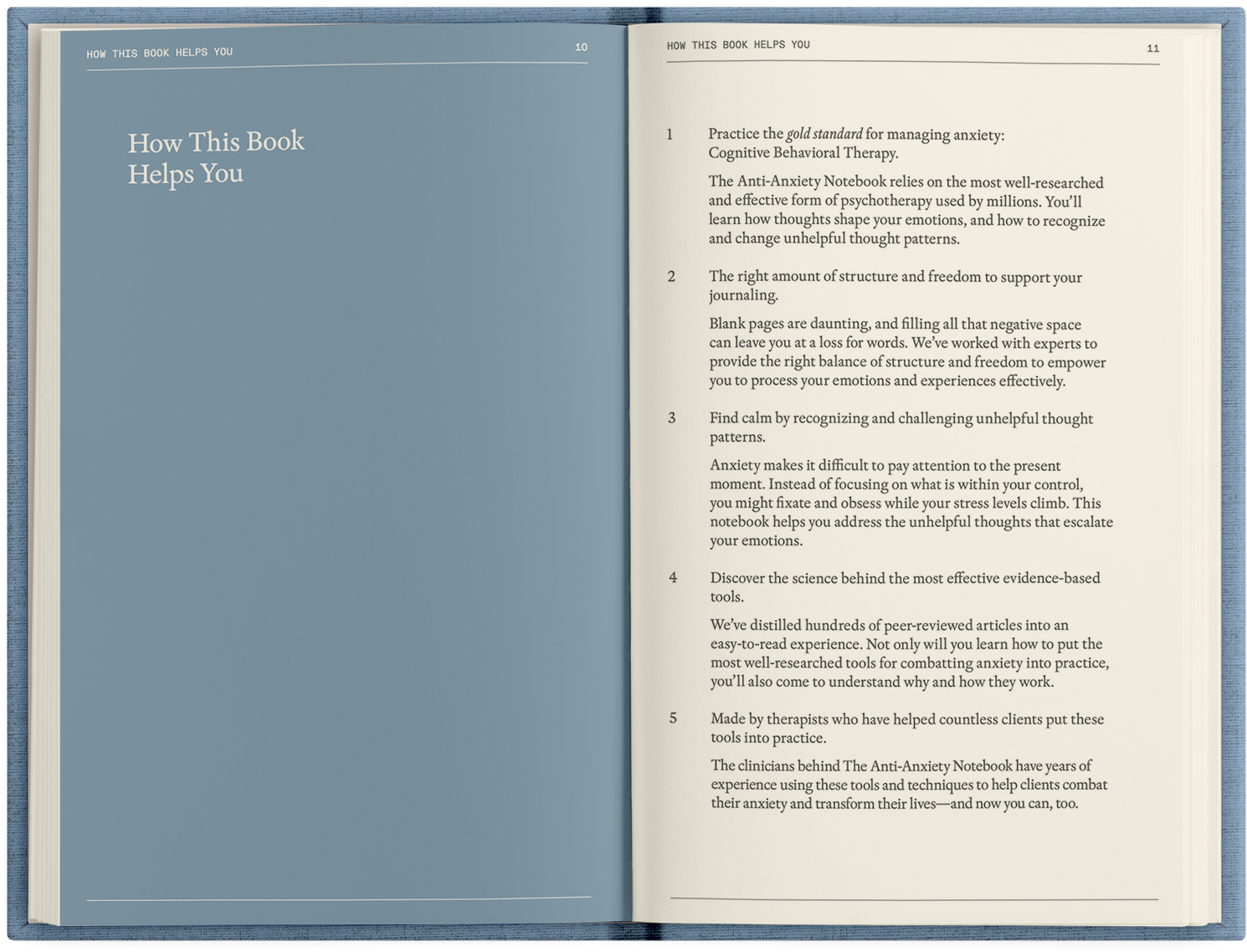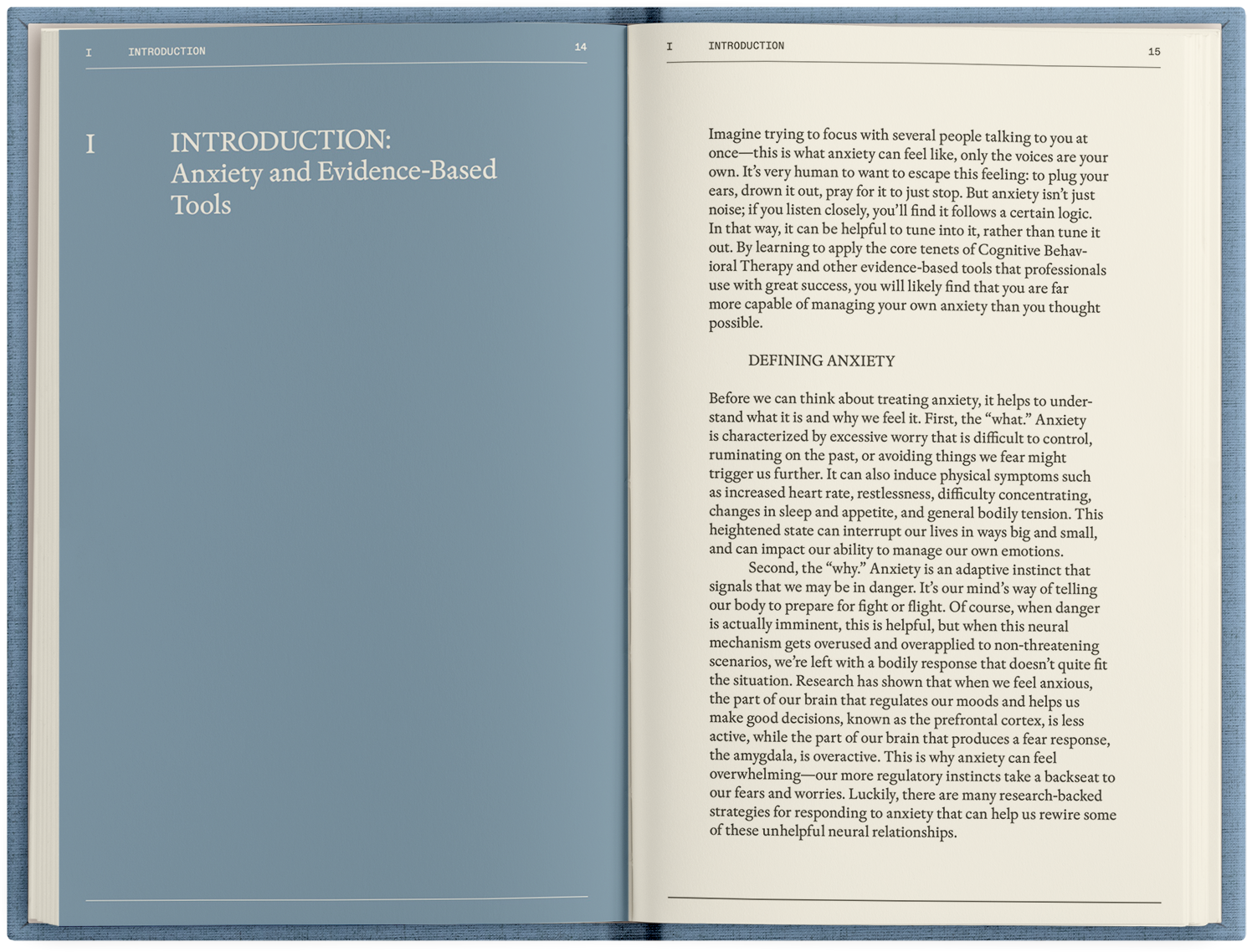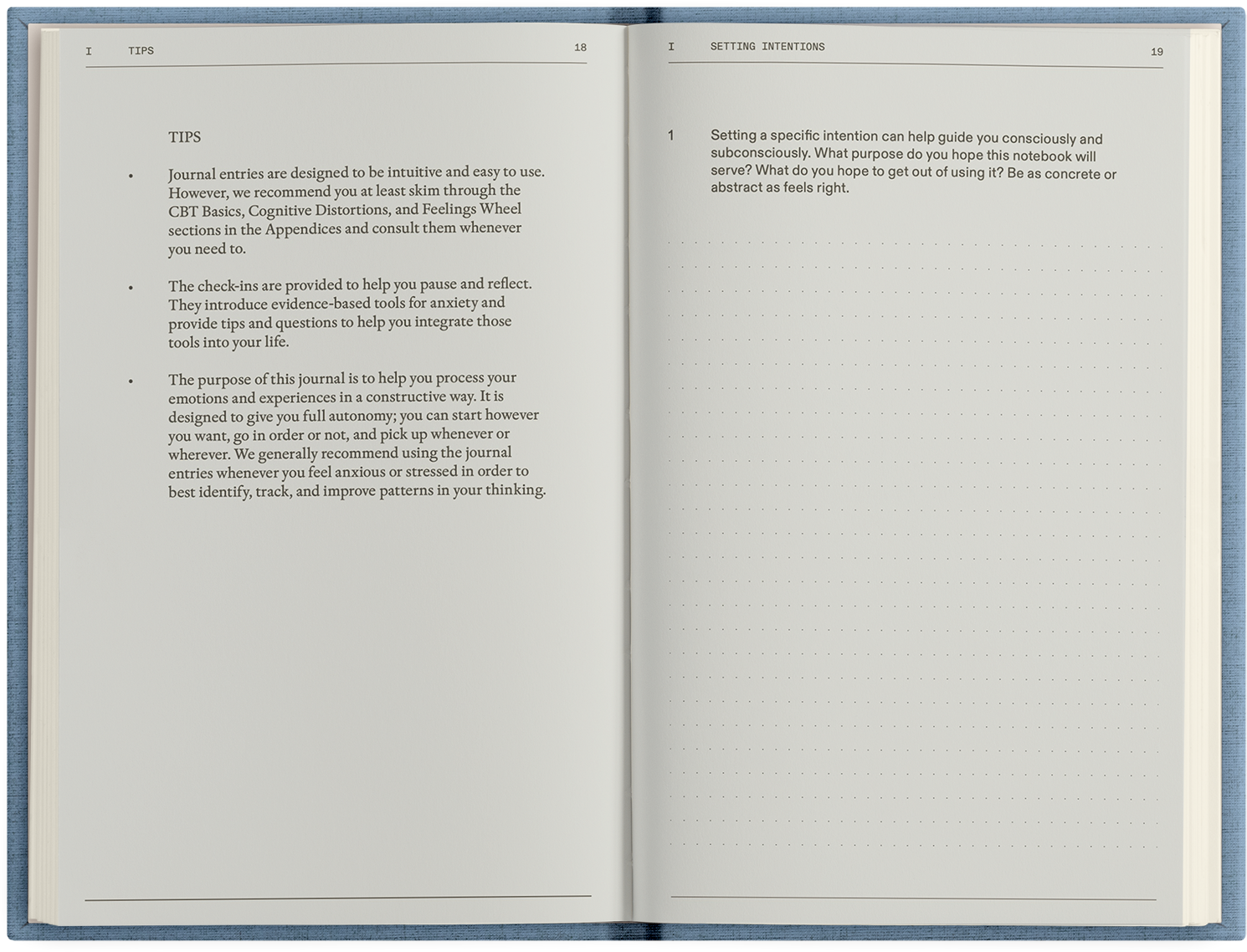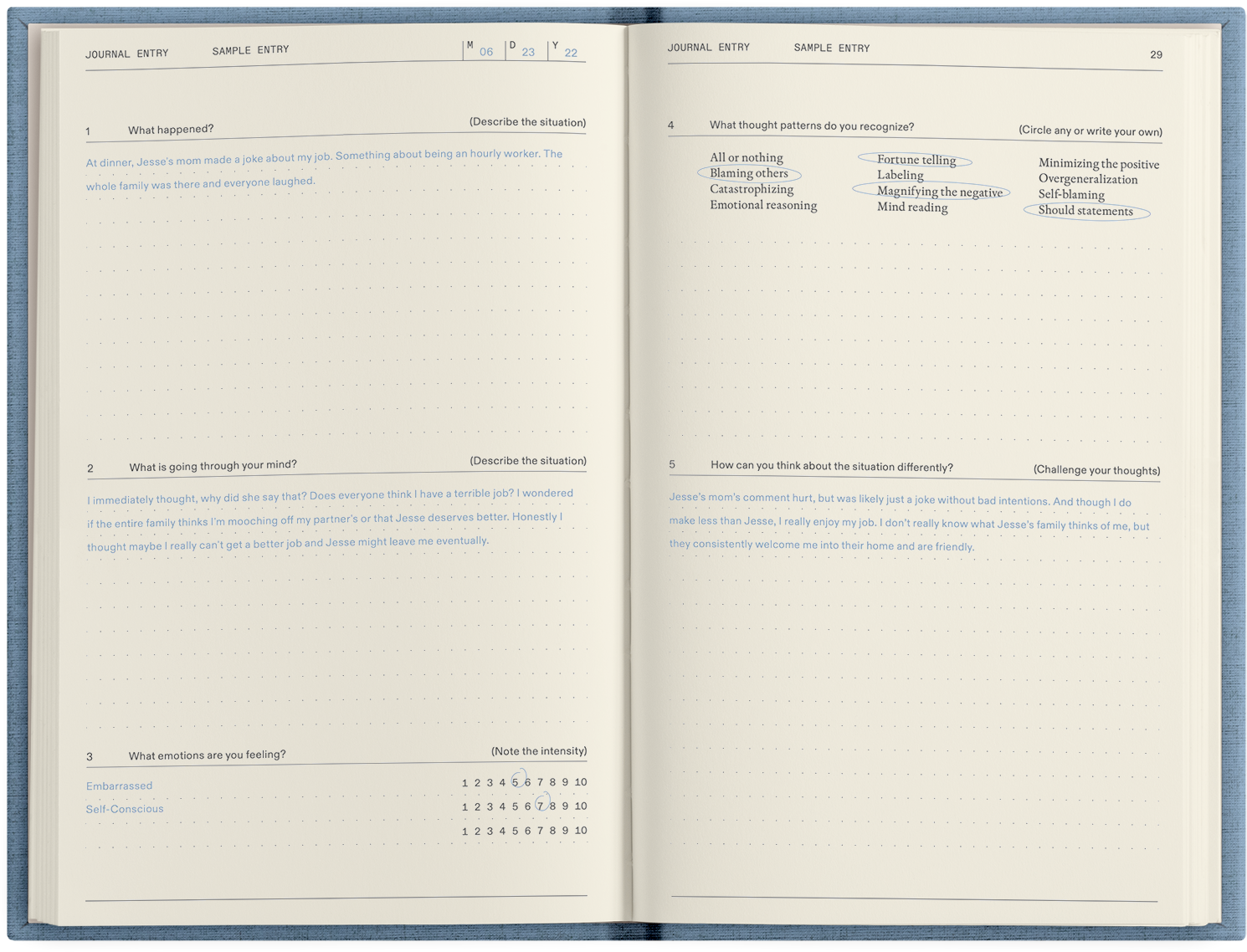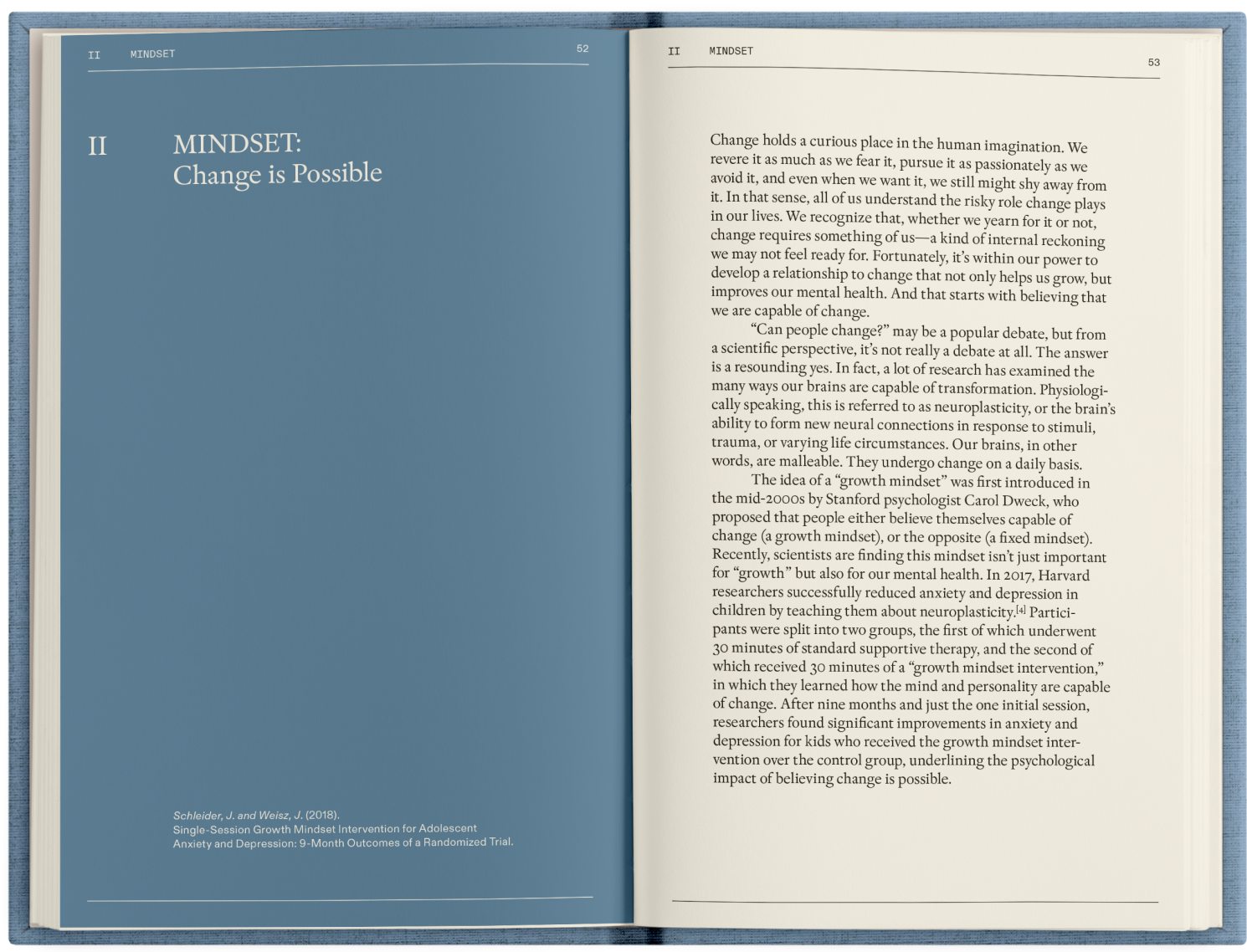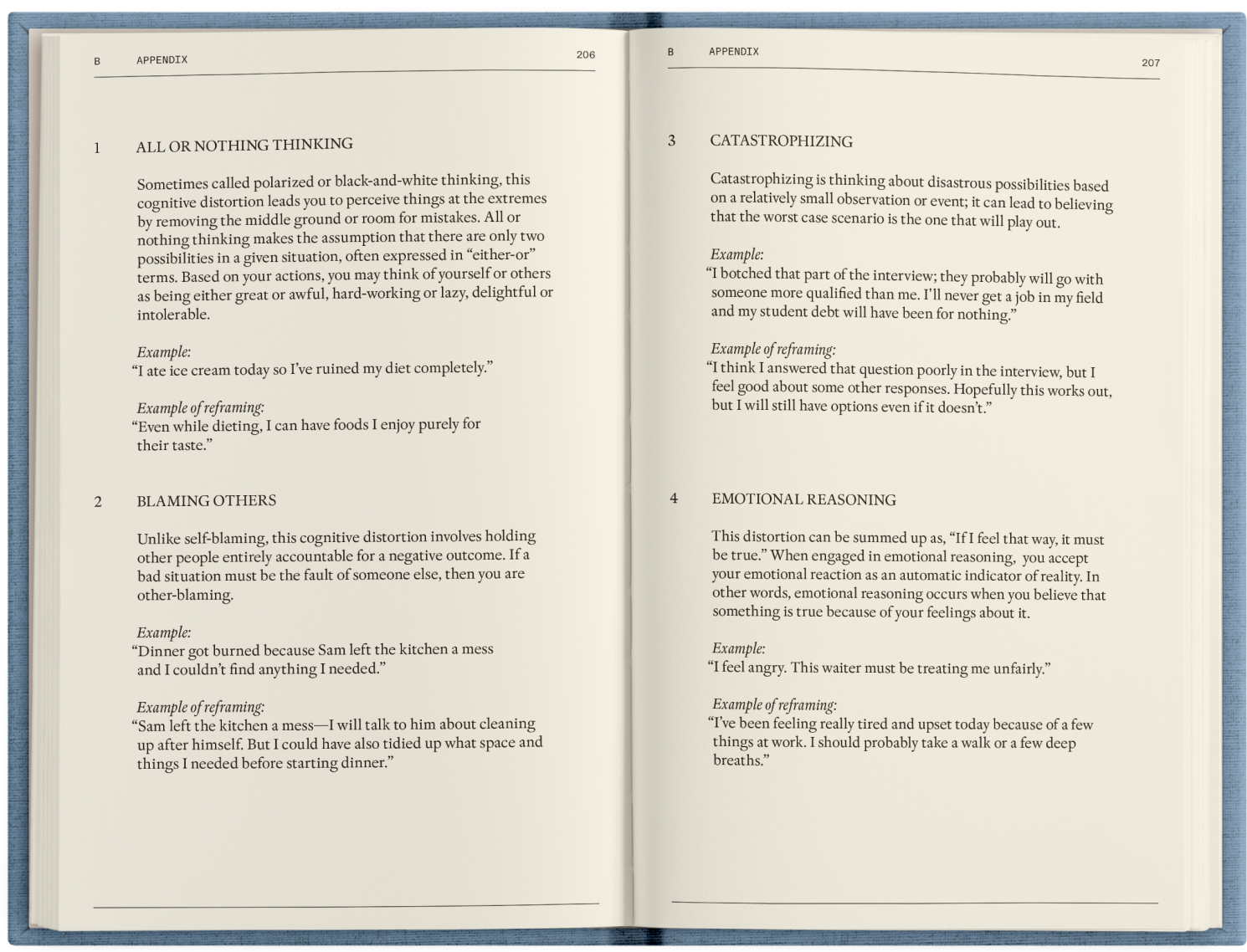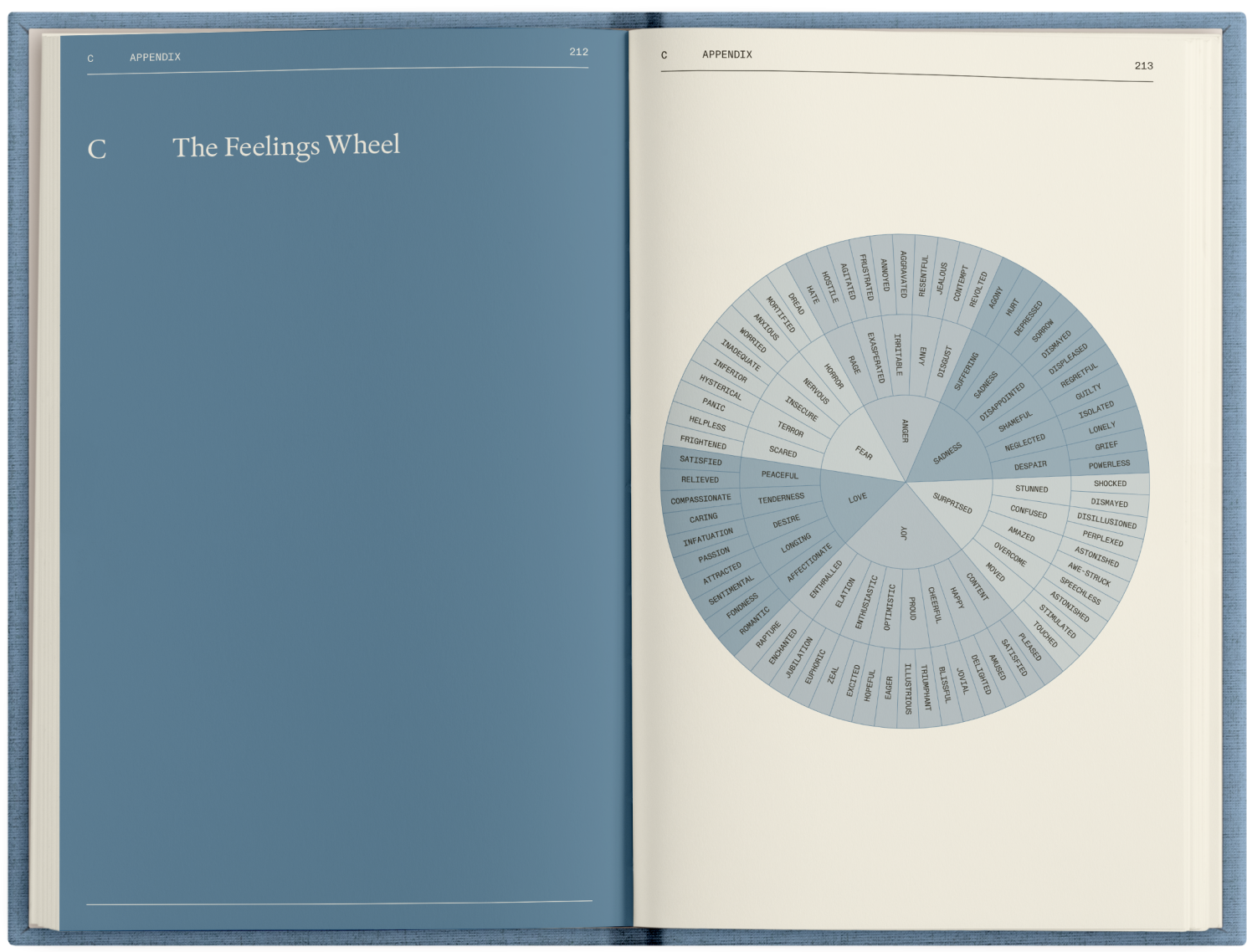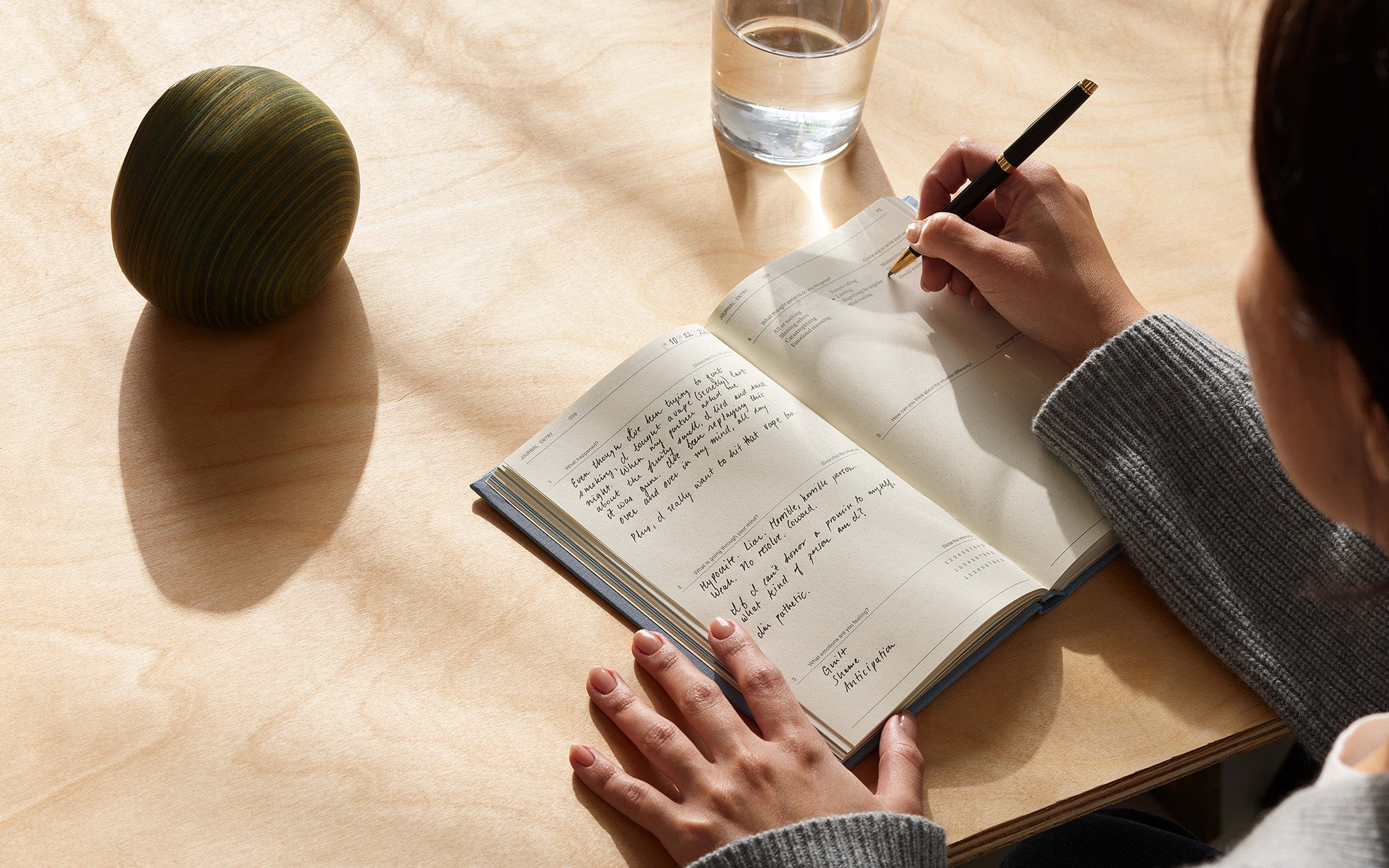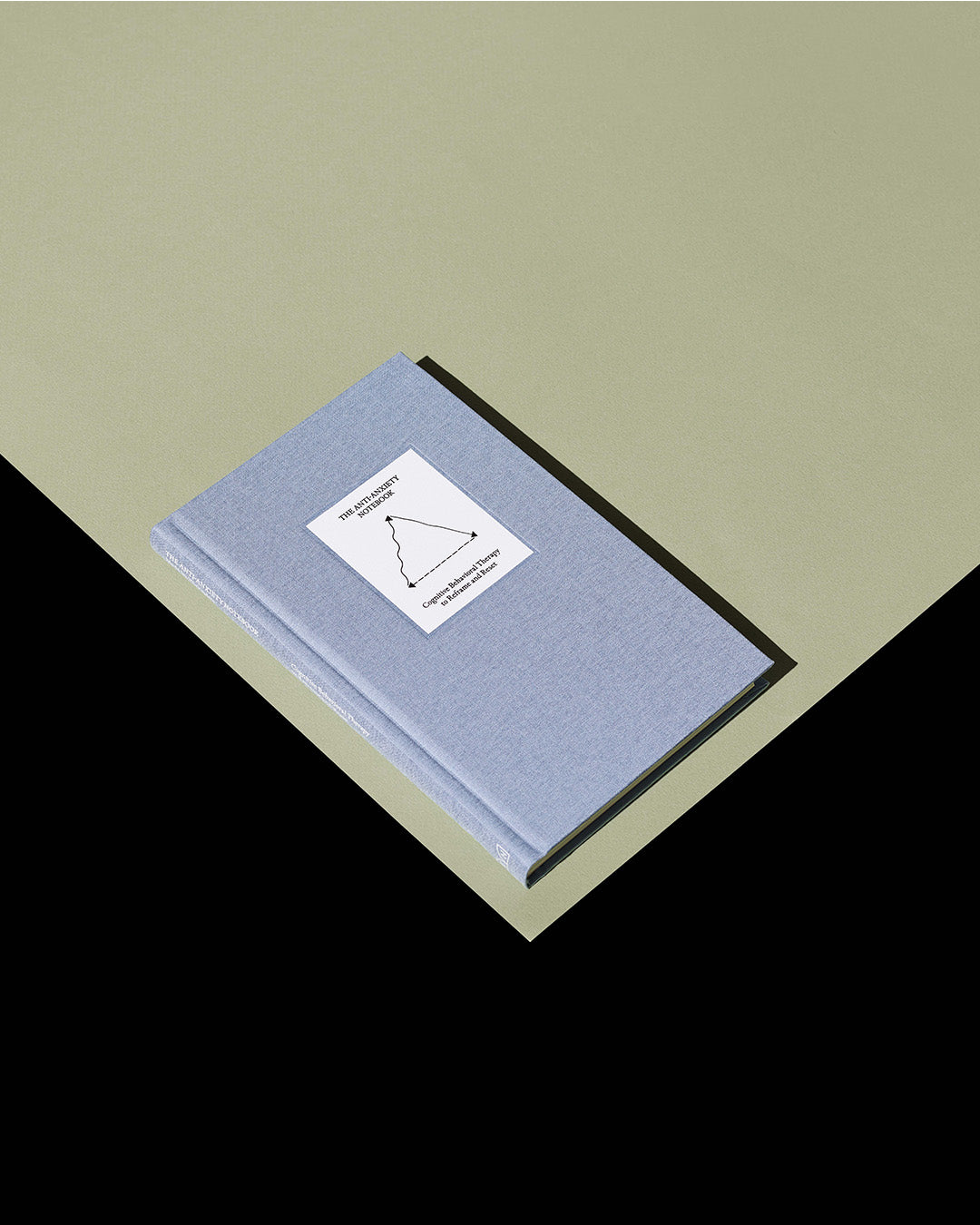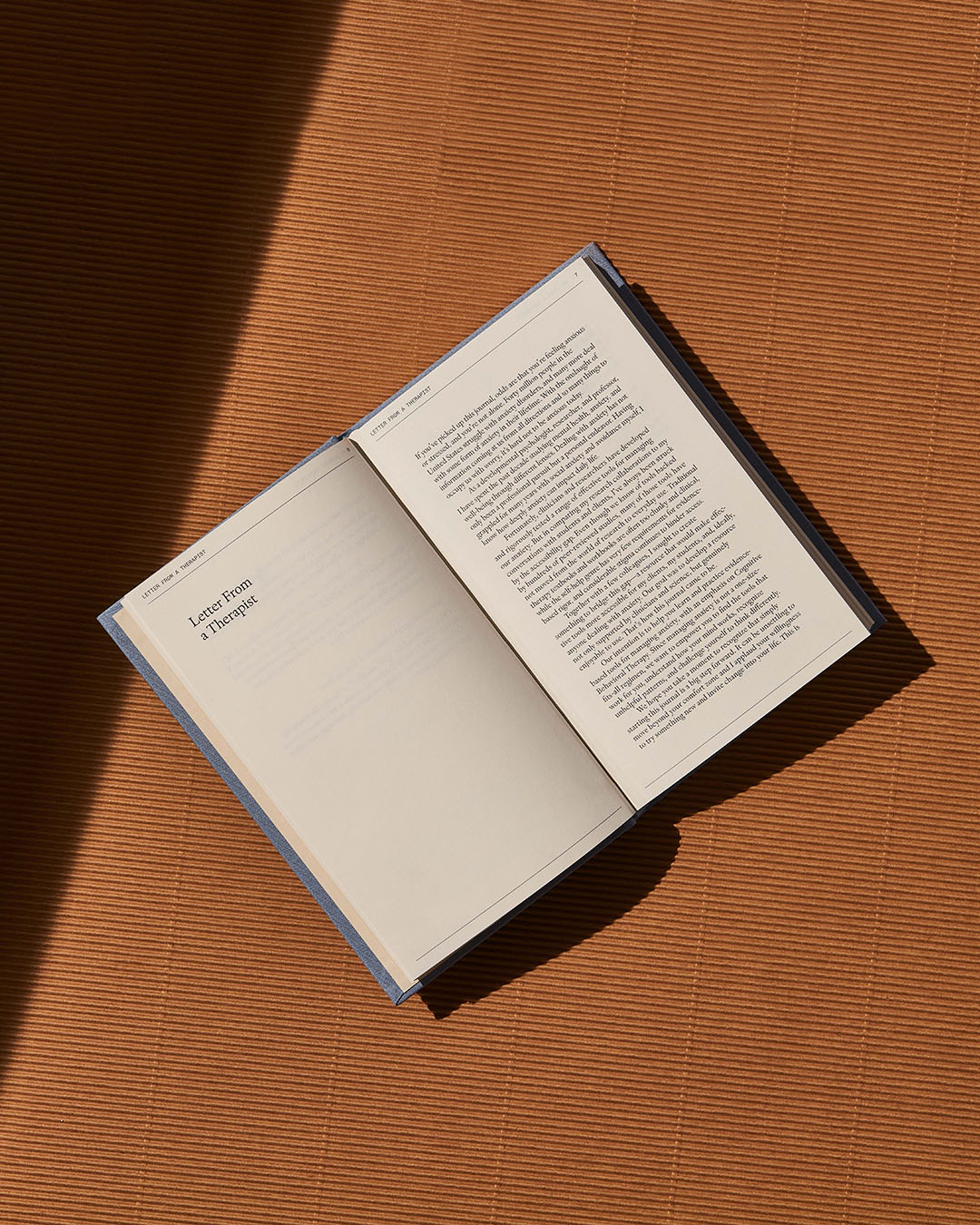Reduce anxiety, manage stress, and become more aware of your thought patterns with this easy-to-use, guided notebook. Utilizing Cognitive Behavioral Therapy, a rigorously-tested and widely-used treatment, you’ll develop the skills to identify, challenge, and change unhelpful thought patterns so you can feel better.
- 40 Guided Journal Entries for in-the-moment support
- Structured exercises proven to help reduce anxiety and track patterns
- 5 check-ins covering different therapy tools for anxiety
- 100+ Notes and Tips From Therapists
- This notebook is filled with 272 pages of 75 gsm cream paper for a smooth & fluid writing experience.
- Hardcover, with a thread-sewn, flat-lay binding. Linen cover material. Heat-sealed ribbon.
- (LxWxH): 8.5" x 5.5" x 0.63", 0.84 lb.
WHO THIS HELPS
Have you ever found yourself feeling tense or unable to relax, but you’re not sure why? Or maybe you’re experiencing dread that you can’t quite pinpoint? The Anti-Anxiety Notebook is a playbook for immediately addressing what’s causing your stress—giving you a sense of greater control over your emotions.
CONTRIBUTORS
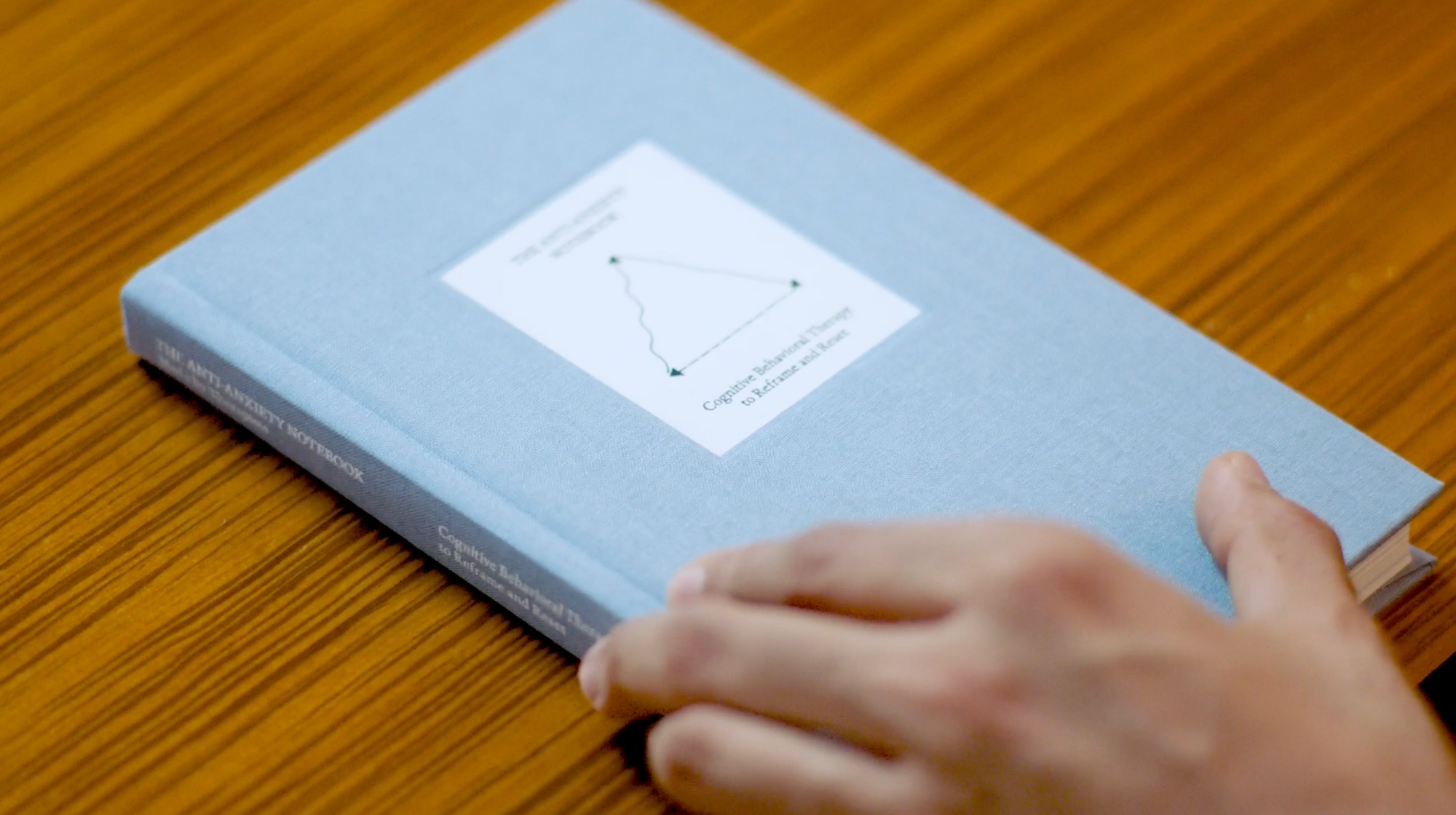
HOW IT WORKS
INSIDE THE BOOK
A way through anxiety that's go-at-your-own-speed.
Learn how to manage fear and worry and get back into the driver's seat when it comes to tackling these challenging emotions. The practices in our notebook help you reframe your thoughts into something much more manageable, accelerating your ability to identify patterns and proactively address issues as they come up.
See what life is like on the other side of your anxiety
The Anti-Anxiety Notebook is grounded in Cognitive Behavioral Therapy, the best-researched and most effective form of psychotherapy. Meaning you’ll get help in-the-moment with a practice that also builds your resilience to future anxiety. Resulting in change you can feel, and progress that’s worth the time you put in.
